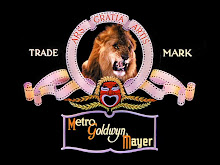 This is my kind of movie!
This is my kind of movie!I initially approached Billy the Kid with trepidation. The great King Vidor directing a 1930 MGM western? The movie had to be an odd antique. It is, as it turns out, odd, but it's not an antique.
Billy the Kid is a slick, romanticized version of the real Henry McCarty and Pat Garrett and their involvement in the six-month long, 1878 Lincoln County War of New Mexico. Though the war is much simplified, some of what happens in the film was apparently true: the corrupt, government-tied land monopoly in the county, the cold-blooded murder of John Tunstall, the women's safe passage from the McSween house before it was burned.
It was Pat Garrett himself who helped mythologize Henry McCarty after the Kid's death. Garrett claimed to have killed him, but that story's been disputed. The real Billy was reportedly as cold-blooded a killer as the posse he was fighting against, an unscrupulous opportunist. Played here by Johnny Mack Brown in a star-making role, Billy is a romantic, non-compromising sharpshooter who's willing to risk everything for justice and is heroically non-plussed; when the ceiling beams of a burning house fall in front of him, he takes the opportunity to light his cigarette from the flames.
Wallace Beery, in a role which confirmed him as a star, is perfect at the ambiguously-motivated Garrett. Kay Johnson plays the love interest in a minimally-written role, and the movie is packed with character actors like Karl Dane, Roscoe Ates and Russell Simpson.
This is a western that doesn't play the by the rules of western movies. Like most MGM films of the period, it mixes humor into the events, creating some bizarrely incongruous, violent scenes.
King Vidor does a fine directing job; the location shots are gorgeous, the sets memorable, the storytelling compelling.
Billy the Kid was originally shot in the widescreen format, but only the more standard size ratio print exists. The film is available on Warner Archive DVD and has been broadcast by Turner Classic Movies. The version shown is the American one, wherein Pat Garrett allows Billy to escape with his life; the European version has Garrett shooting him dead.





